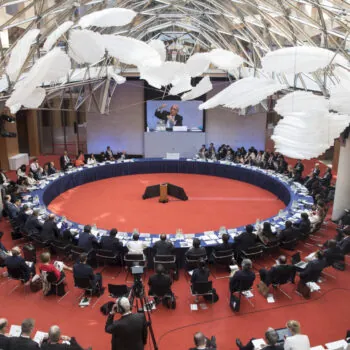As the dust settles after the historic adoption of the Paris 2015 agreement, E3G and friends share a short blog series exploring what Paris means to different sectors, regions and constituencies.
The global economy is decarbonising. The pledges made by countries in the run up to the Paris deal imply a doubling of current rates of decarbonisation. In the EU alone investment in renewable energy will need to make up 78% of cumulative power sector investment to 2030. Energy efficiency in the transport and buildings sector will increase by over 30%, requiring substantial investment.
The disruption to business-as-usual value creation will be far-reaching. The EU region has made the most progress in undertaking the deep transformation to a low carbon economy. The disruptive economic impacts of the transition are already visible with EU utilities who bet against renewables losing €500bn in value. Across the EU countries are beginning an aggressive phase out of coal plants led by the UK commitment to complete shut down by 2025.
Forward-thinking investors have long been aware of both the potential opportunities – and the value at risk – implicit in this low carbon transition. In the run up to the Paris conference a growing number of investors had been visibly demonstrating an increased willingness to act.
Examples include the Principles for Responsible Investment’s Montreal Pledge. This Pledge commits 120 investors managing portfolios totalling US$10 trillion to measure and publicly disclose their carbon footprint on an annual basis. The Global Investor Statement on Climate Change has brought together almost 400 investors representing over US$24 trillion to pledge to increasing low carbon and climate resilient investments. The rapidly growing movement to decouple emissions from growth, the Portfolio Decarbonisation Coalition, enables investors to act on the Montreal pledge by measuring, disclosing and reducing the carbon footprint of their portfolios. A growing number of infrastructure portfolios are also now open to energy efficiency and climate resilience as selling points.
Most analysts expect countries to exceed their Paris pledges as the EU has its 2020 targets. A substantial part of this is due to action taken by non-government actors. Paris saw an extraordinary set of commitments on climate change from regions, businesses, cities, financial institutions and many others. The RE100 group of major companies (ranging from Google to Goldman Sachs, and Microsoft to Coca Cola) committed to source their electricity from 100% renewable sources. Nearly 1,000 mayors from five continents, backed in Paris by Leonardo Dicaprio, pledged to deliver a transition to 100% renewable energy in their communities or an 80% reduction in greenhouse gases by 2050. In Europe, 16 leading companies from across the continent committed to nearly zero energy buildings for new build by 2020 and for refurbished buildings by 2030.
Businesses and cities have demonstrated that they are ready to lead on climate change. The clear outcomes achieved in Paris will give them confidence to invest and the knowledge that their actions will improve the security of their supply chains and lives of their citizens. The task at hand is to understand the impact the Paris commitments will have on market opportunities.
Investors will need to take a clear view on how they think the transition will unfold. Climate change opportunities and risks will have an impact at the level of asset classes, industry sectors and sub-sectors. They will need to start to incorporate climate governance into their investment processes, developing climate change-inclusive strategies and translating those into policy statements. From there portfolios will need to be adjusted on the basis of climate-related risk assessments; new investment selections and weighting; enhancing investment management and monitoring; and company engagement.
Taking a stronger public stance on government action to accelerate the transition will also be important. The Paris agreement is a legally binding framework for all countries to progressively cut greenhouse gas emissions. Backsliding from past pledges is explicitly outlawed. All segments of society will need to play their role in ensuring momentum is maintained. So it’s time for all investors to catch up with forward-thinking asset owners and managers to build resilient portfolios based on strong climate governance frameworks and informed investment strategies. It’s now not a case of if but when and how the low carbon transition occurs. Failure to embrace this fact will leave investors on the wrong side of a poor bet.


